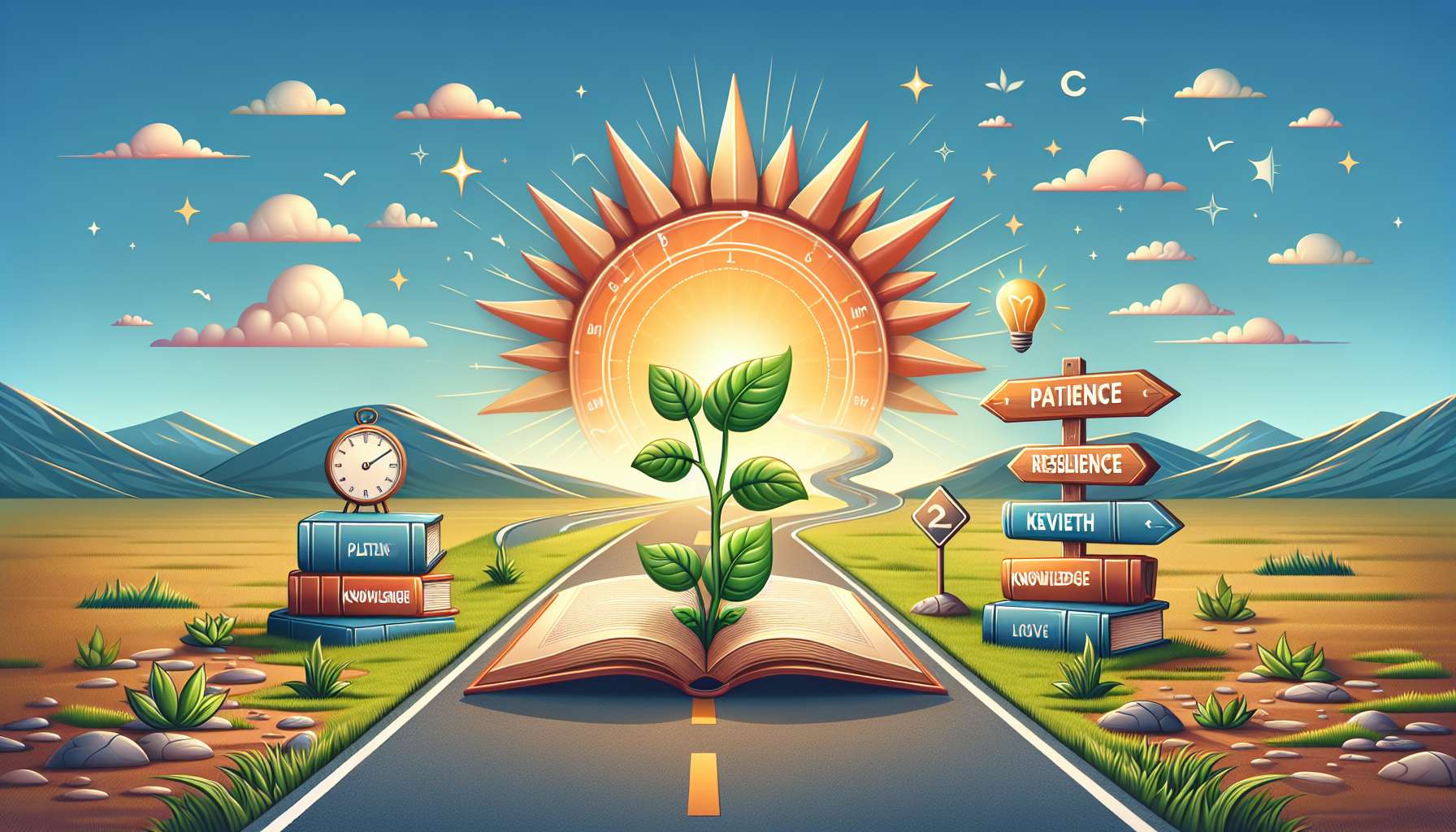Self-Growth Roadmap Essentials: A Guide to Personal Development
Embarking on a journey of self-discovery and personal growth is a transformative experience that can lead to a more fulfilling and purposeful life. Just like any journey, having a roadmap is essential to navigate the inevitable challenges and setbacks along the way. In this comprehensive guide, we will delve into the essential components of a self-growth roadmap and explore how you can cultivate a mindset of continuous improvement and self-actualization.
The Importance of Self-Growth
Self-growth is a lifelong process of learning, self-discovery, and personal development. It involves introspection, self-awareness, goal-setting, and taking intentional steps to become the best version of yourself. The benefits of self-growth are numerous, including improved mental health, increased resilience, better relationships, and a sense of purpose and fulfillment.
However, embarking on a journey of self-growth can be daunting, especially if you are unsure of where to start or how to navigate the challenges that may arise. This is where a self-growth roadmap comes in handy, providing you with a clear path to follow and a framework for personal development.
Setting SMART Goals
One of the first steps in creating a self-growth roadmap is setting specific, measurable, achievable, relevant, and time-bound (SMART) goals. By defining clear objectives for your personal growth journey, you can track your progress, stay motivated, and hold yourself accountable. Whether your goals are related to career advancement, improving relationships, or enhancing your well-being, setting SMART goals is a crucial first step towards self-improvement.
For example, if your goal is to improve your physical fitness, a SMART goal could be to run a 5k race within the next three months. This goal is specific (running a 5k race), measurable (the distance of the race), achievable (with proper training), relevant (to your fitness goals), and time-bound (within three months).
Cultivating Self-Awareness
Self-awareness is a key component of self-growth, as it allows you to understand your strengths, weaknesses, values, and motivations. By cultivating self-awareness, you can make informed decisions, set realistic goals, and develop healthier relationships with yourself and others.
There are many ways to build self-awareness, including mindfulness practices, journaling, seeking feedback from others, and engaging in self-reflection. By taking the time to explore your thoughts, emotions, and behaviors, you can gain valuable insights into yourself and make the necessary changes to support your personal growth.
Continuous Learning and Personal Development
Personal growth is a lifelong journey that requires a commitment to continuous learning and self-improvement. This involves seeking out new experiences, acquiring new skills, and challenging yourself to step outside of your comfort zone. By embracing a growth mindset and viewing challenges as opportunities for growth, you can unlock your full potential and achieve your goals.
There are many ways to engage in continuous learning and personal development, such as taking online courses, attending workshops and seminars, reading books, and seeking out mentors and coaches. By investing in your personal growth and development, you can expand your knowledge, enhance your skills, and become a more confident and capable individual.
Building Resilience and Overcoming Challenges
Personal growth is not always a smooth journey, and you are likely to encounter obstacles, setbacks, and failures along the way. Building resilience is essential for overcoming challenges and bouncing back from adversity. Resilience involves developing coping strategies, maintaining a positive outlook, and learning from your experiences.
One way to build resilience is to reframe setbacks as opportunities for growth and learning. By viewing challenges as temporary setbacks rather than insurmountable obstacles, you can approach them with a sense of optimism and determination. Additionally, practicing self-care, staying connected to supportive relationships, and focusing on your strengths can help you build resilience and navigate the ups and downs of personal growth.
Practicing Self-Compassion and Acceptance
Self-compassion is an important aspect of personal growth, as it involves treating yourself with kindness, understanding, and acceptance. Rather than being self-critical or judgmental, practicing self-compassion allows you to acknowledge your imperfections and mistakes without harsh self-judgment.
Self-compassion involves being mindful of your thoughts and emotions, practicing self-care, and offering yourself the same level of compassion and empathy that you would offer to a friend. By cultivating self-compassion, you can build resilience, enhance your well-being, and foster a positive self-image.
Creating a Support System
Personal growth is not a solo journey, and having a strong support system can provide you with the encouragement, guidance, and accountability you need to achieve your goals. Your support system may include friends, family members, mentors, coaches, or support groups who can offer you emotional support, practical advice, and motivation.
Building a support system involves reaching out to others, sharing your goals and challenges, and seeking help when you need it. By surrounding yourself with positive and supportive individuals, you can create a nurturing environment that fosters personal growth and development.
Embracing Change and Adaptability
Personal growth often involves stepping outside of your comfort zone, taking risks, and embracing change. By being open to new experiences and challenges, you can expand your horizons, discover new opportunities, and grow as an individual.
Embracing change requires a willingness to adapt to new circumstances, learn from your experiences, and adjust your goals and priorities as needed. By staying flexible and open-minded, you can navigate the twists and turns of your personal growth journey with resilience and grace.
Conclusion: Navigating Your Self-Growth Roadmap
Embarking on a journey of self-discovery and personal growth is a rewarding and transformative experience that can lead to a more fulfilling and purposeful life. By creating a self-growth roadmap and embracing the essential components of personal development, you can unlock your full potential, achieve your goals, and become the best version of yourself.
Remember to set SMART goals, cultivate self-awareness, engage in continuous learning, build resilience, practice self-compassion, create a support system, and embrace change and adaptability. By following these essential steps and committing to your personal growth journey, you can navigate the challenges and setbacks along the way with confidence and determination.
Are you ready to embark on your self-growth roadmap? Take the first step today and start your journey towards personal development and self-discovery. Your future self will thank you!




